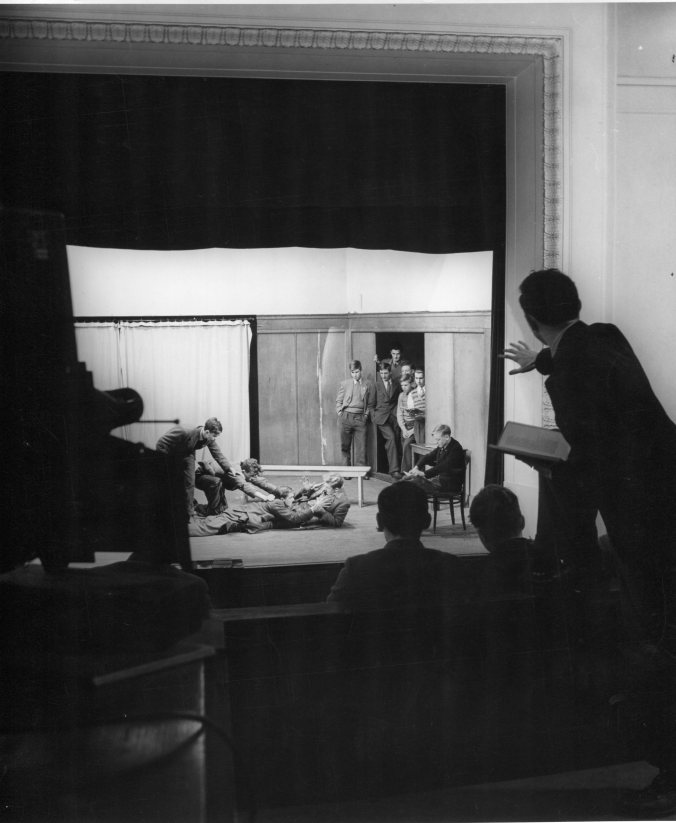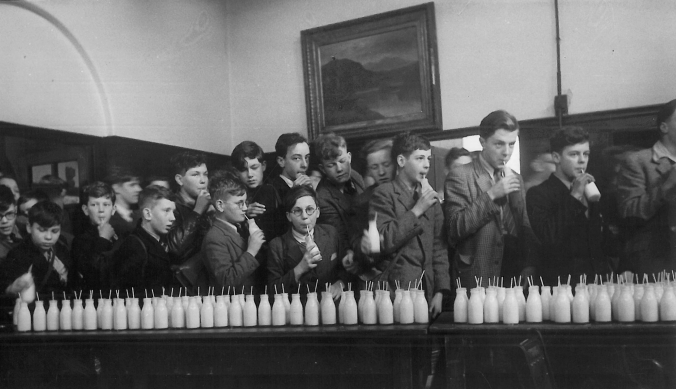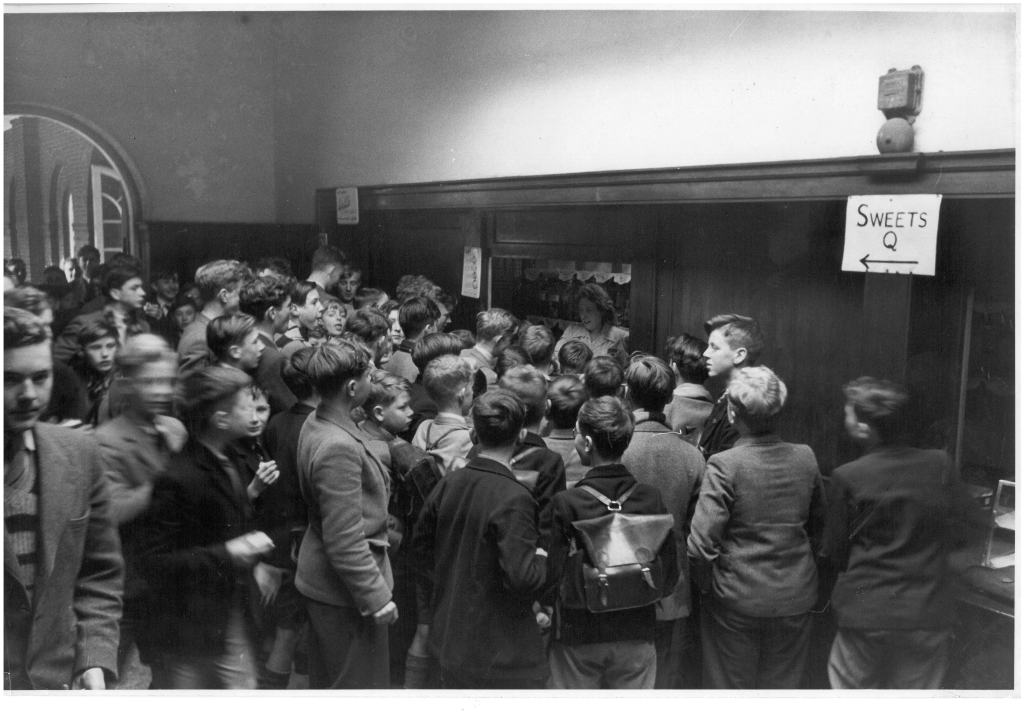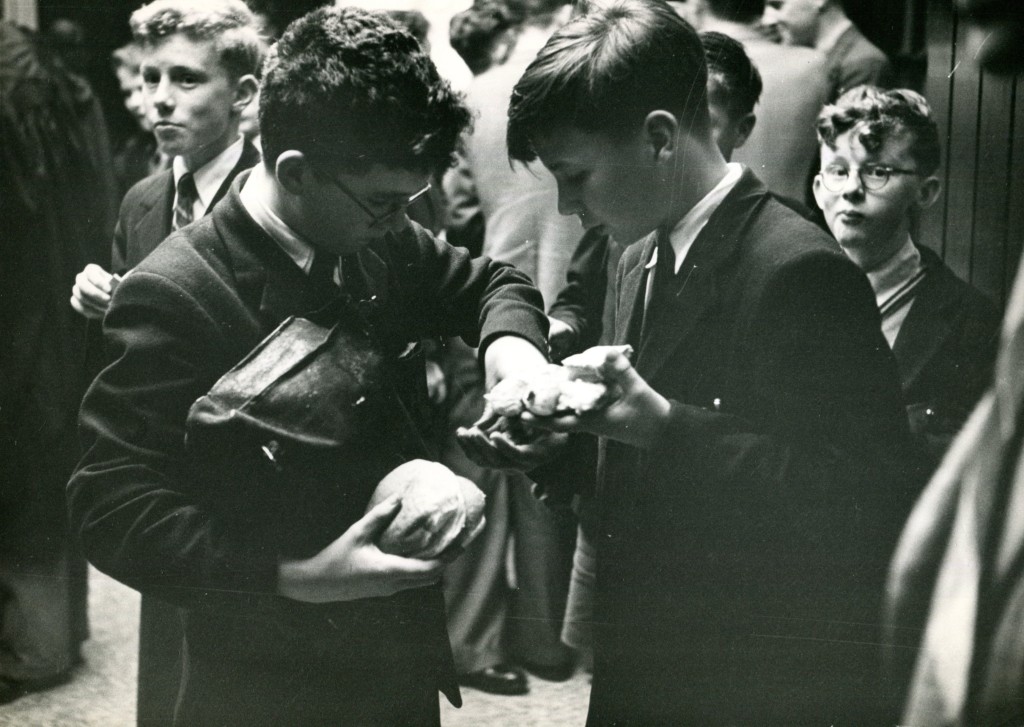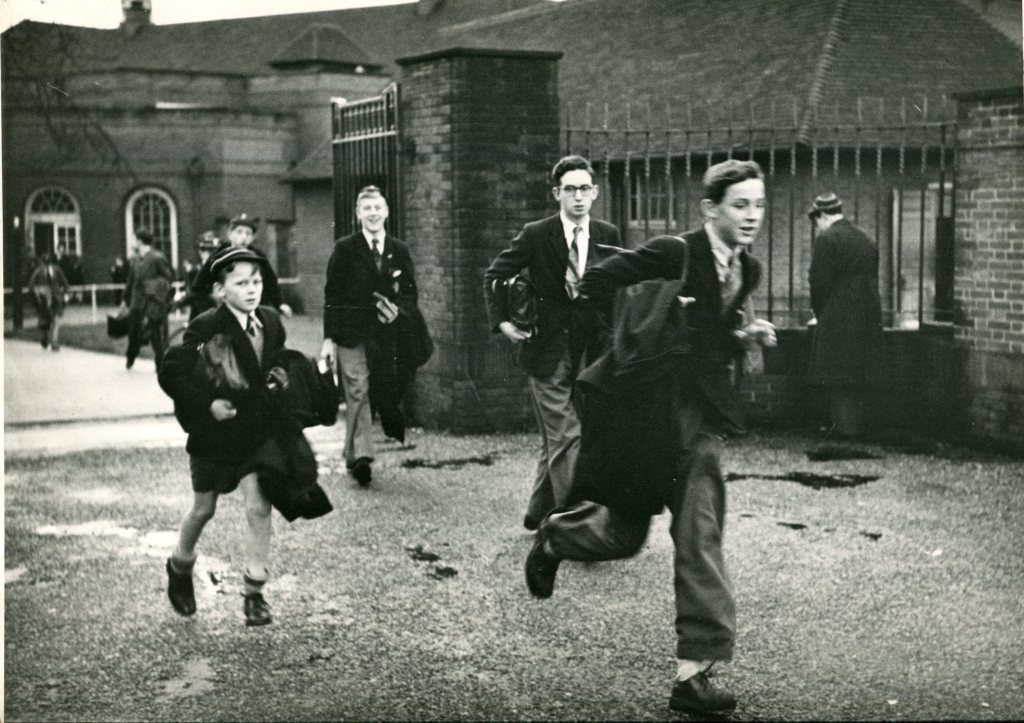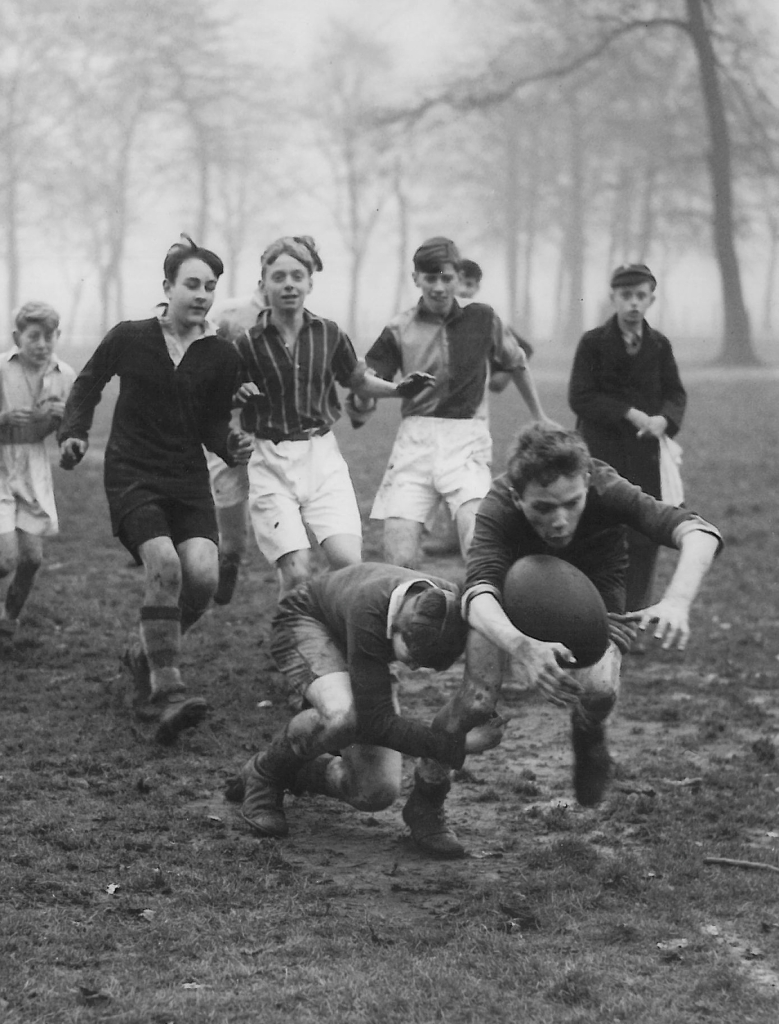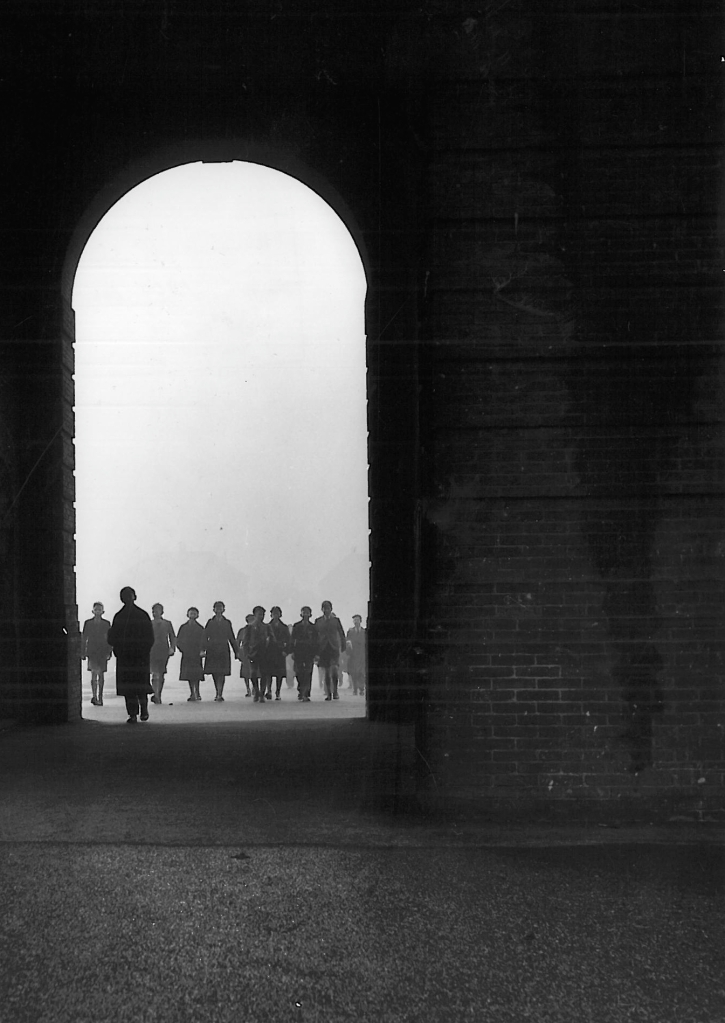This week, an exhibition has been staged in the archive room to give the school community a chance to see some treasures from the MGS archive alongside a selection of “everyday” documents that form the majority of the archive.
Here are some photographs from the exhibition, and a digital version of the exhibition.
Missale Romanum, 1494
The provenance of this volume is unknown, but it has belonged to the school since at least 1931, when repair work was carried out on the spine. It is a Missal – a liturgical book containing texts and music for use in the Roman Catholic mass. Only 11 other known copies of this volume exist. For further reading, follow this link https://www.mgs-life.co.uk/article/the-history-of-mgs-in-50-objects-48-missal?ref=
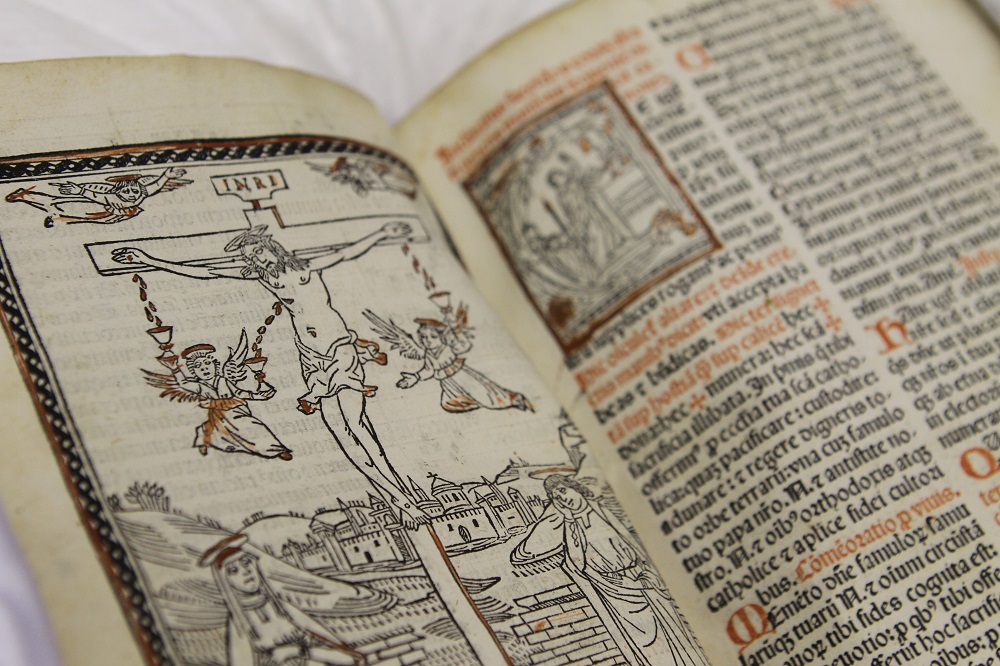
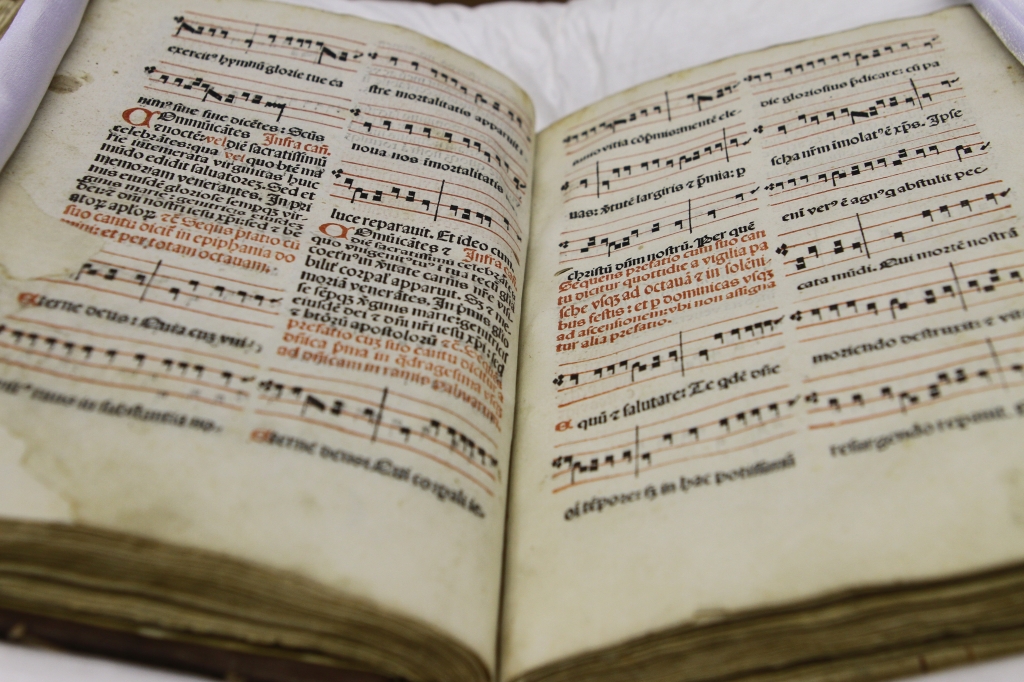
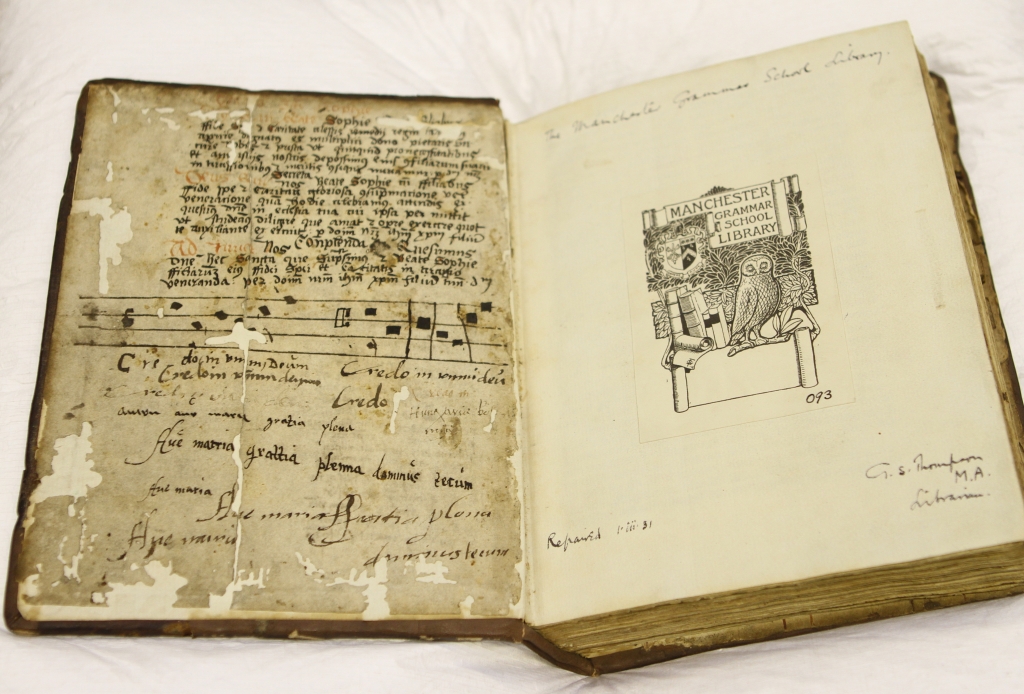
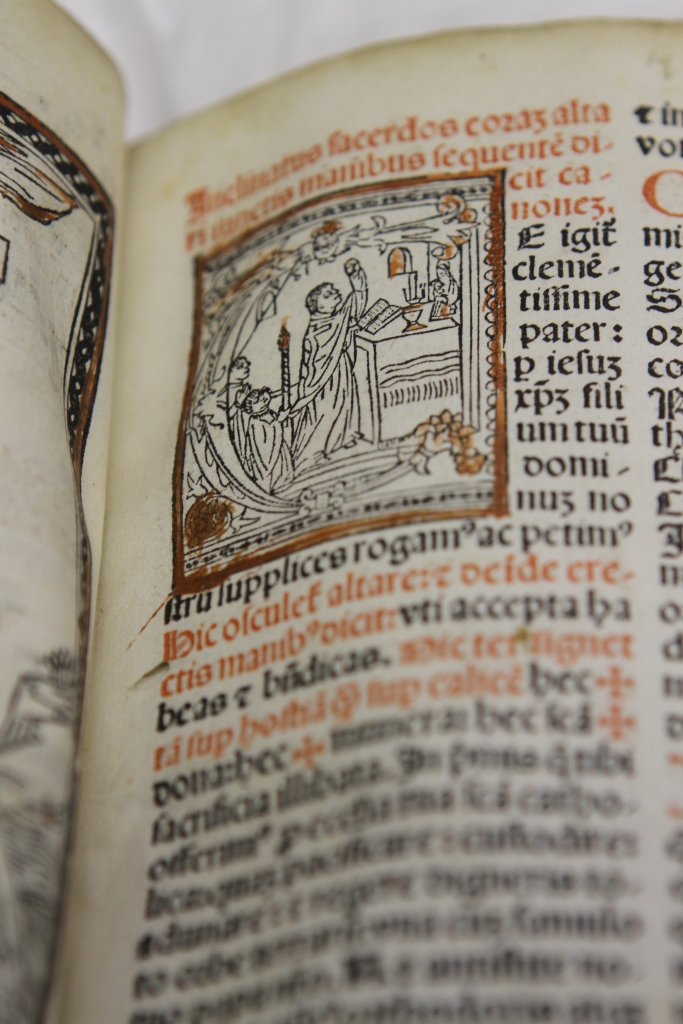
________________________________________________________________________________________________________________
Novum Testamentum, 1522
This volume is the third edition of Erasmus’ translation of the New Testament. The volume has the signature of Hugh Bexwyke, one of the founders of MGS, at the head of the preface. It has belonged at various times to MGS, possibly Durham School, Corpus Christi College and finally made its way back to MGS. It was probably the gift of Percy Stafford Allen, a noted Erasmus scholar, who was President of Corpus Christi College, Oxford and a governor at MGS. For further reading, follow this link https://www.mgs-life.co.uk/article/the-history-of-mgs-in-50-objects-4-erasmus-new-testament?ref=
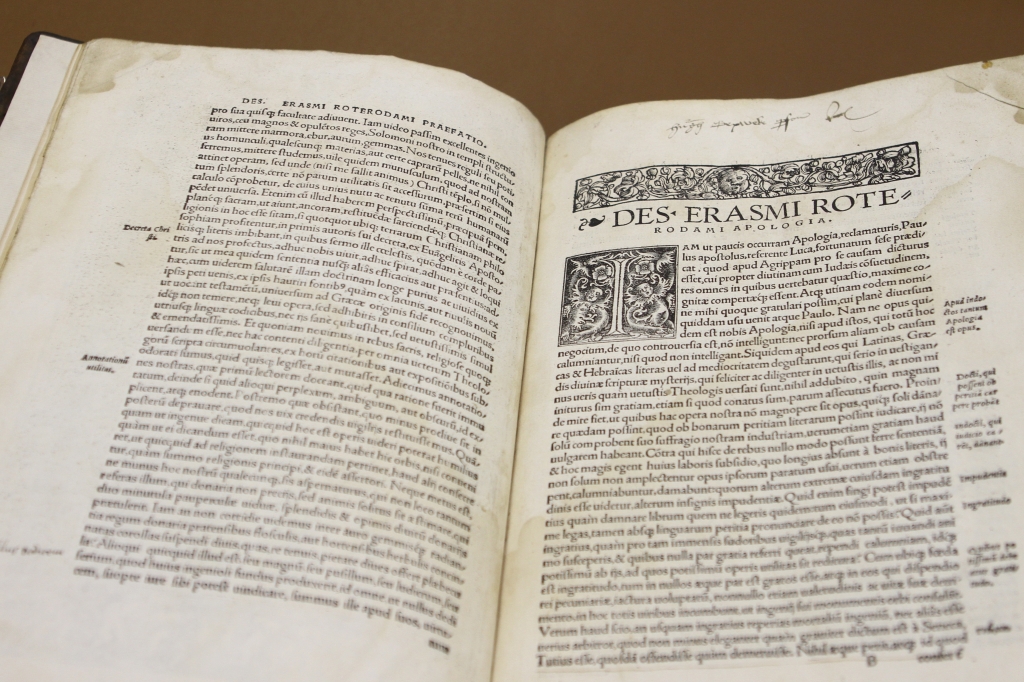
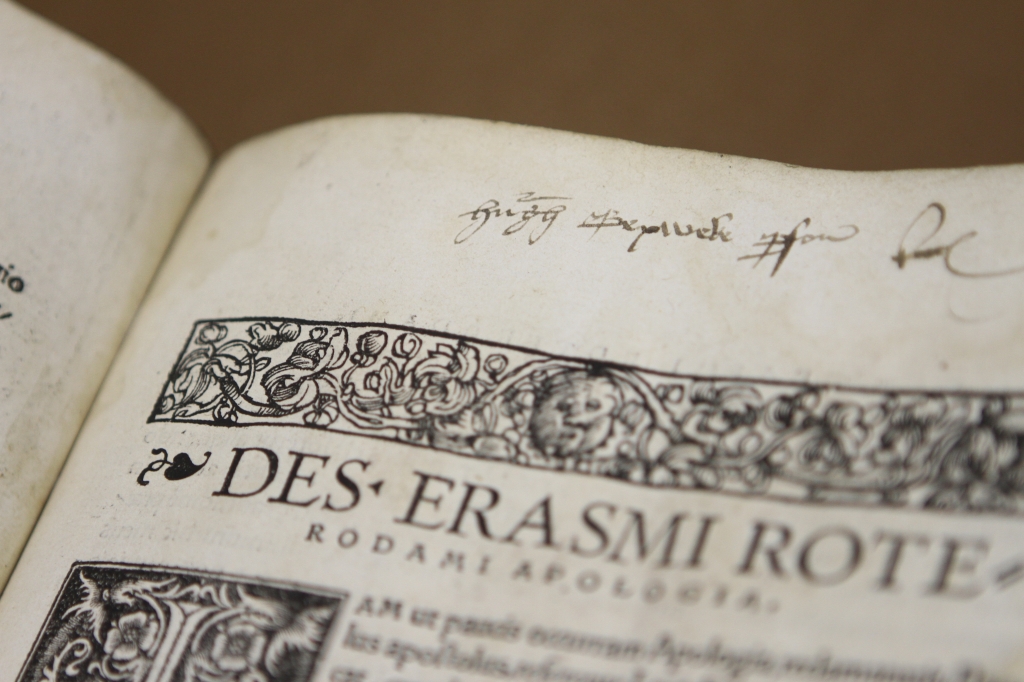
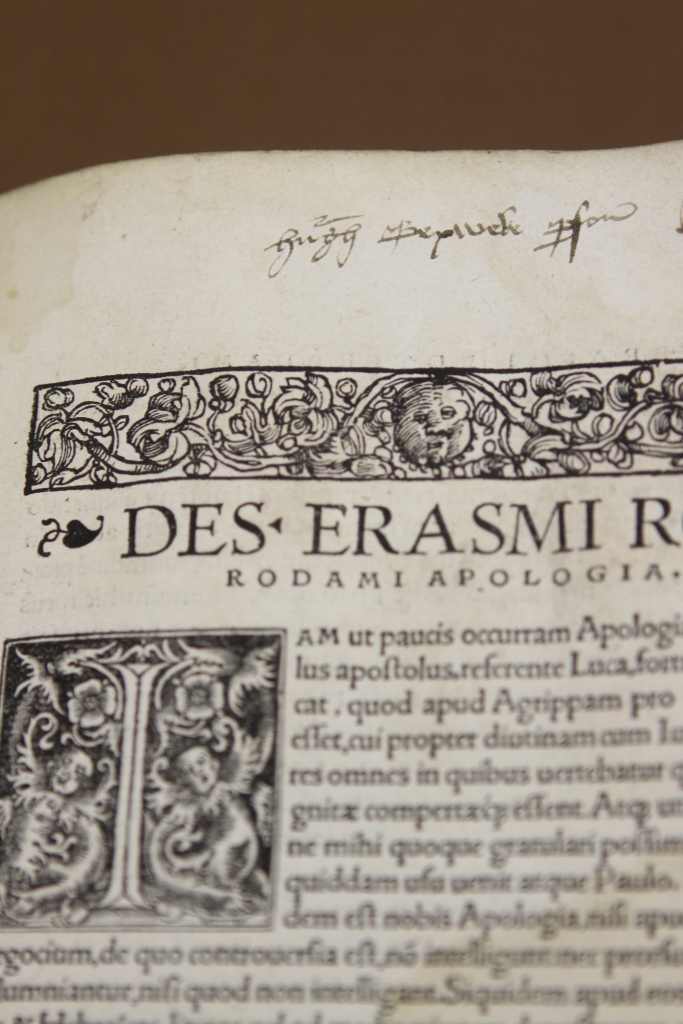
________________________________________________________________________________________________________________
“Speeches Spoke At The Grammar Scholl Manchester In The Year 1640“
This volume contains handwritten Latin speeches that were delivered by boys at MGS in the 17th century. It was presented to the school by Prebendary Finch Smith, son of High Master Jeremiah Smith, in the early 19th century. Its first two owners are recorded as George Chetham and John Lightbowne. It is then recorded that the papers were discarded and then rescued “From a fish stall in the Market place Manchester as waste paper, 1700”.
In 1921 the Chetham Society published extracts of transcriptions of the original Latin, edited by Alfred Mumford (school doctor and author of a history of MGS). The verses and poems appear to have a strongly Royalist flavour and Mumford suggests this was due to the political leanings of High Master Ralph Brideoake – “Manchester was a hotbed of Puritanism at the time of Brideoake’s appointment, and he clearly used his position to instil Royalist principles in his scholars.”
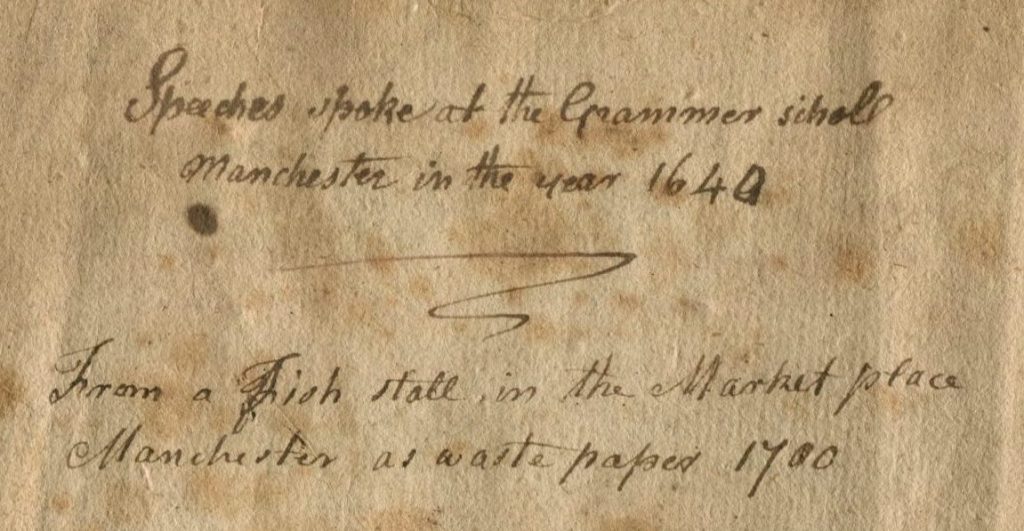
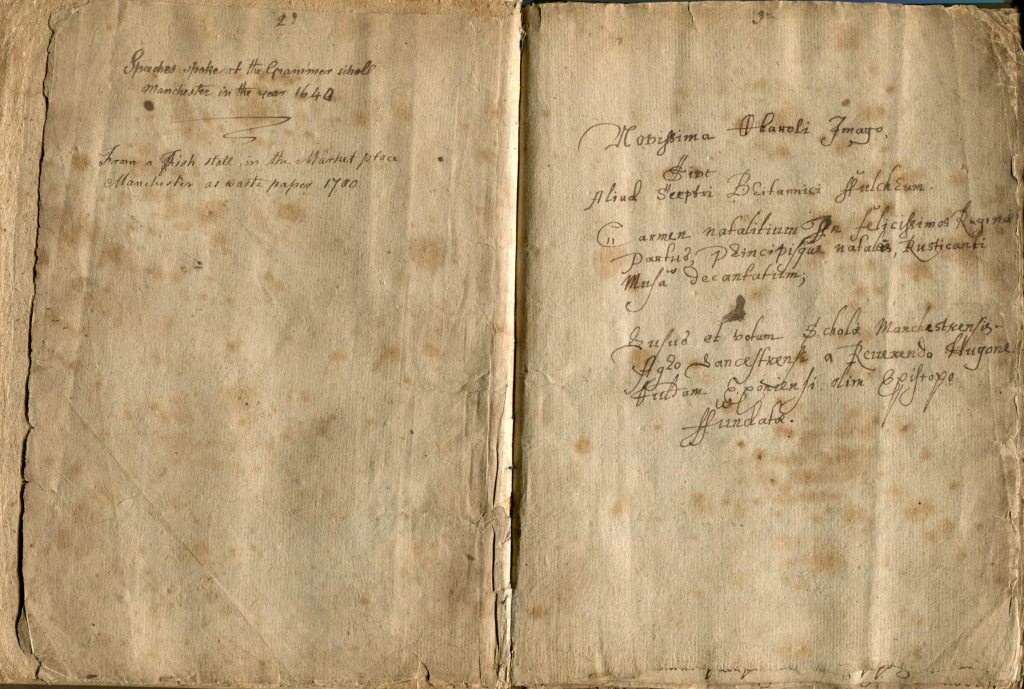
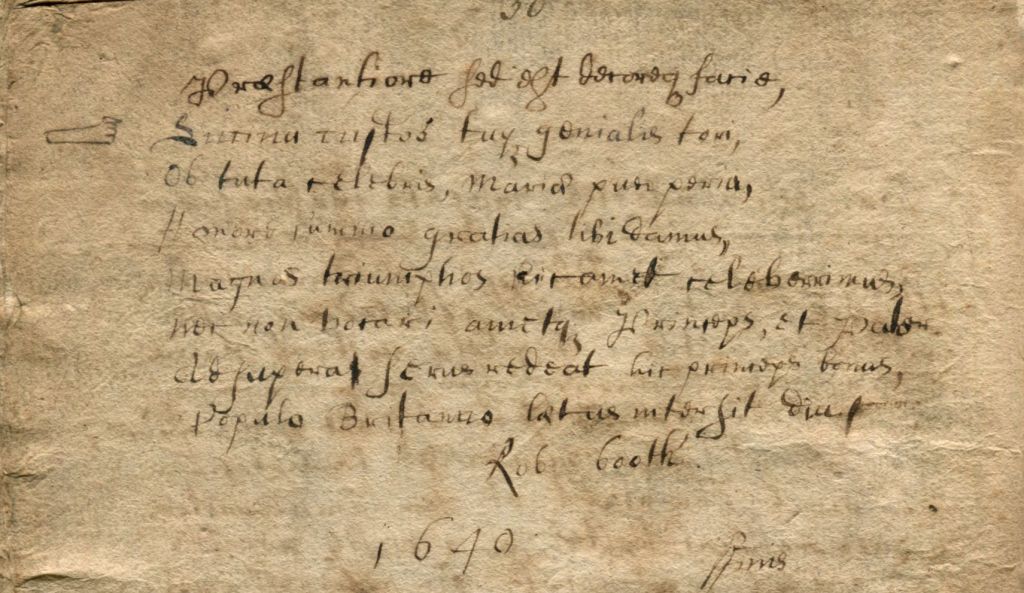
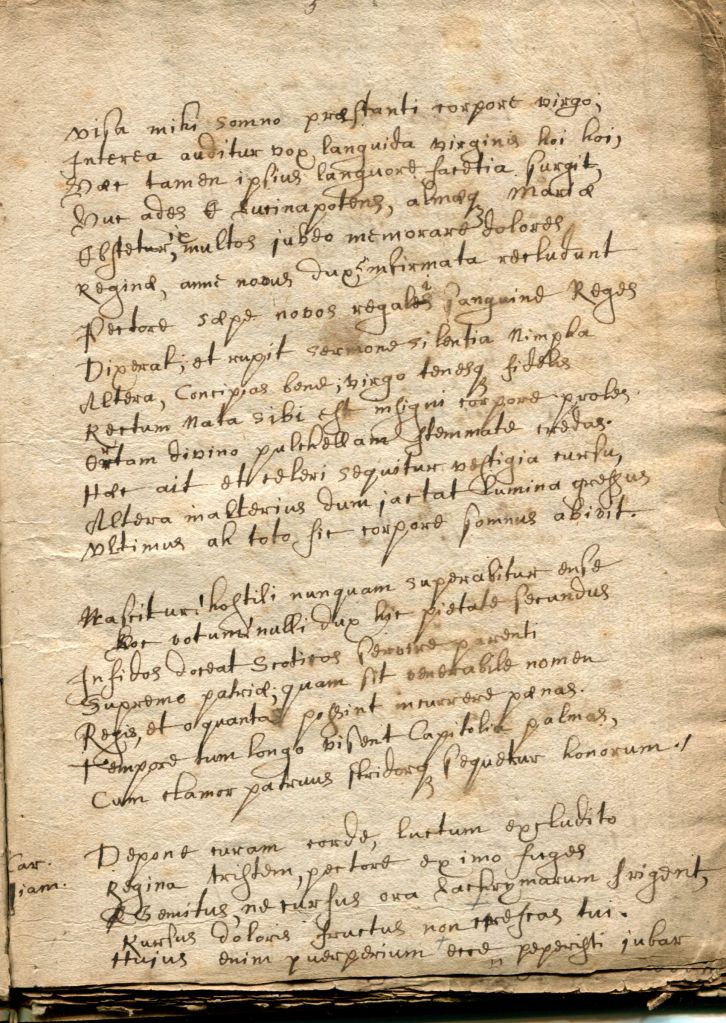
________________________________________________________________________________________________________________
Foundation Deed, 1515
This document is the original legal basis for the founding of the School. It is written in Latin, as all legal documents were during this period. The archive also holds a number of later copies of the deed.
Key excerpts include:
“…the said parties had often taken into consideration that the youth, particularly in the county of Lancaster, had for a long time been in want of instruction, as well on account of the poverty of their parents, as for want of some person who should instruct them in learning and virtue, and therefore to the intent that there should be some fit person to teach youths and boys freely.”
“…the said parties covenanted and agreed that the said Hugh Oldham, bishop of Exeter, the said warden and fellows, and the said Thomas Langley, Hugh Bexwyke and Ralph Hulme … should provide and nominate a fit person…learned and fit to be master, to teach and instruct scholars in grammar, in the town of Manchester…and an usher (hostiarium) or substitute to such master, to teach grammar in his absence, or for his assistance…and the said warden and fellows agree to pay annually without any deduction, £10 to the said master, and £5 to the said usher; and William Pleasington was thereby appointed as the person who should first, freely and without anything to be therefore given to him, except his stipend, instruct in grammar all boys and children in the said town of Manchester”
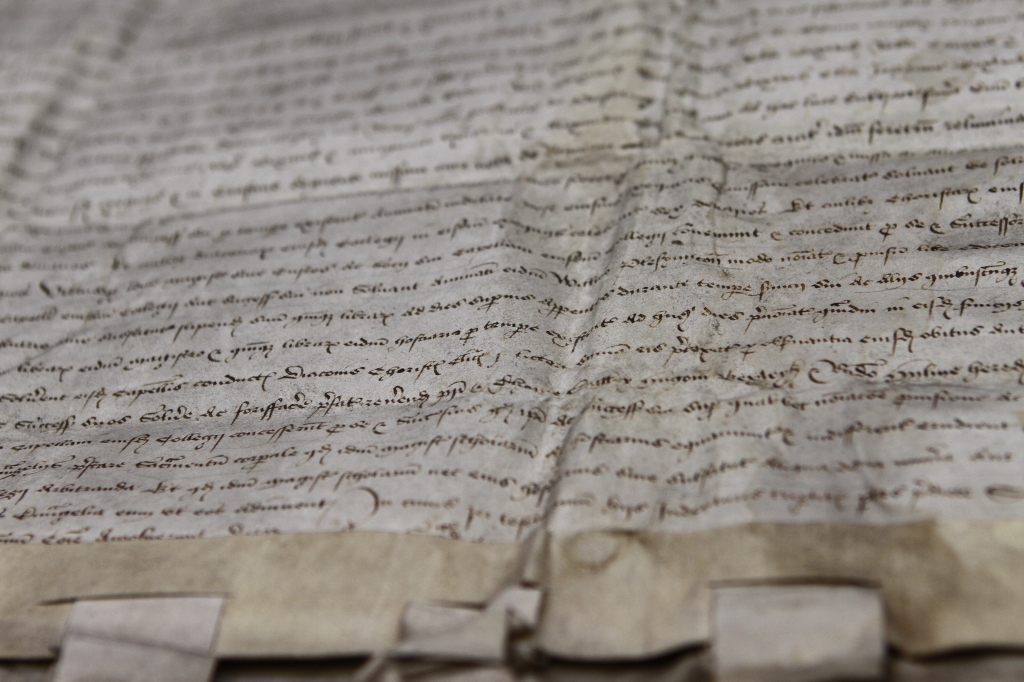
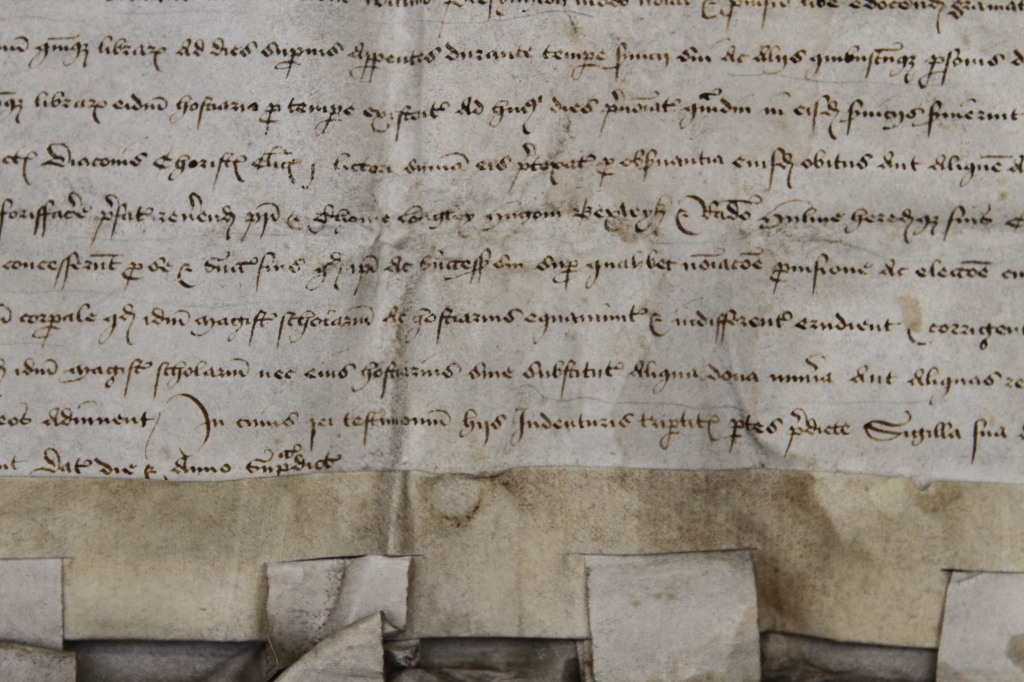
________________________________________________________________________________________________________________
Percy Burn’s School Report, 1908
This boy was studying in the sixth form on the “Classical Side”, which meant his education would have focused on classical languages and studies. High Master J.L. Paton has filled in this report:
“Needs more joyousness & sunshine in his life. Needs also, as all creatures of flesh & blood do need, one day’s rest in seven. A new man into new surroundings & new society sh[oul]d open him up & give fresh vitality to his mind”
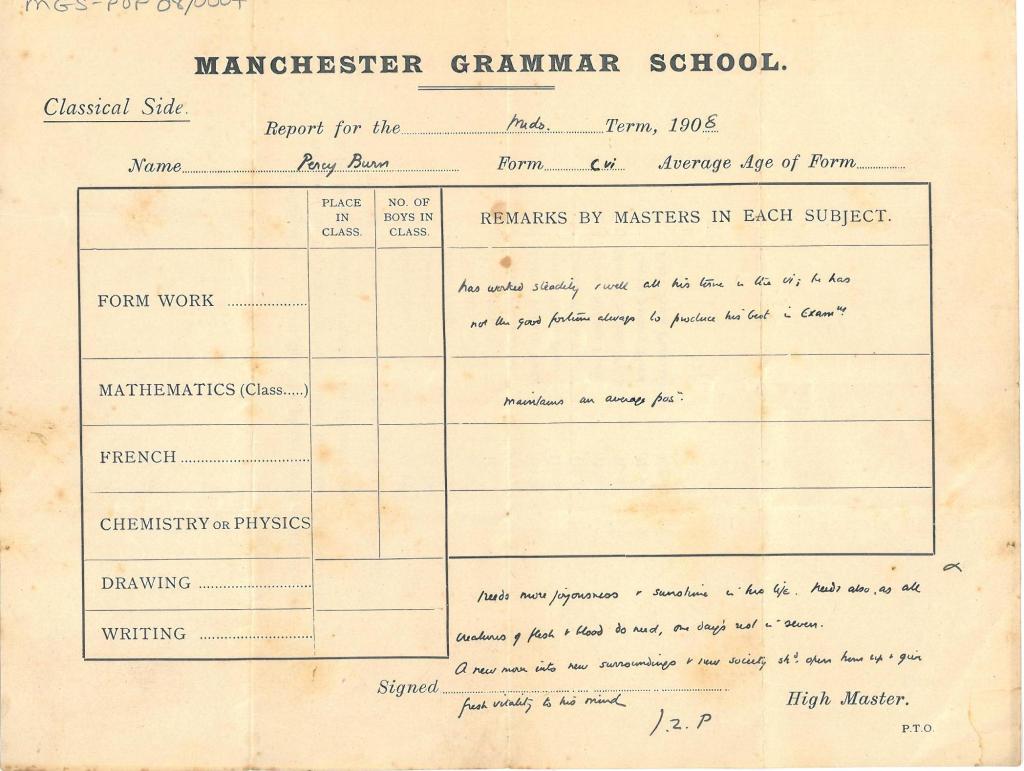
________________________________________________________________________________________________________________
“Handbook for Parents”, 1922
This school handbook for parents gives an interesting insight into views on health and wellbeing in the 1920s. The guide was written by High Master J.L. Paton, who introduced treks and camps to MGS. To read more, follow these links: https://www.mgs-life.co.uk/article/handbook-for-parents-1922?ref= https://www.mgs-life.co.uk/article/the-history-of-mgs-in-50-objects-11-handbook-for-parents?ref=
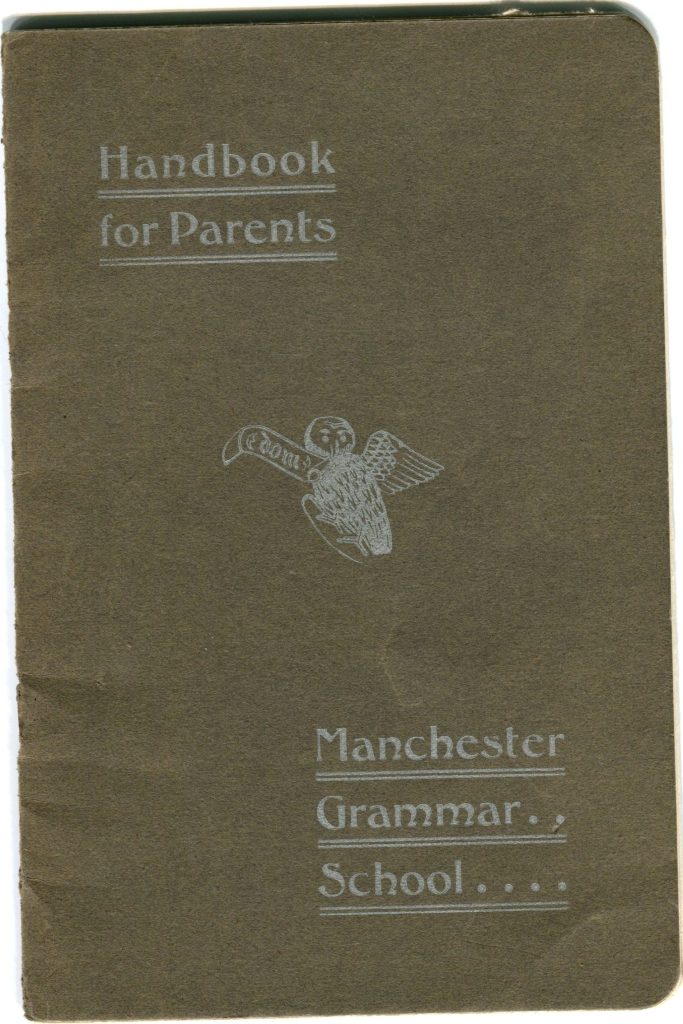
________________________________________________________________________________________________________________
Postcard from George Bernard Shaw, 1914
In this letter Shaw replies to a request to donate money to a fund set up by the Old Mancunian Association to honour Old Mancunian playwright Stanley Houghton. The fund would be used to award a prize for best Drama essay, and was set up, despite Shaw’s misgivings. F. Voyce, who had written on behalf of the OMA, gave the letter to the school in 1970.
16th June 1914 – The Stanley Houghton Memorial
I shall certainly not support the monstrous proposal to make the drama a school subject and thereby propagate an incurable loathing of it among the future citizens of Manchester.
Why not endow a guarantee fund to enable the Gaity Theatre to give performances of his works every year, or to produce one new play by a Manchester beginner? That is the proper way to keep his memory green and fertile
G. Bernard Shaw
To read more, follow this link: https://www.mgs-life.co.uk/article/letter-from-george-bernard-shaw?ref=
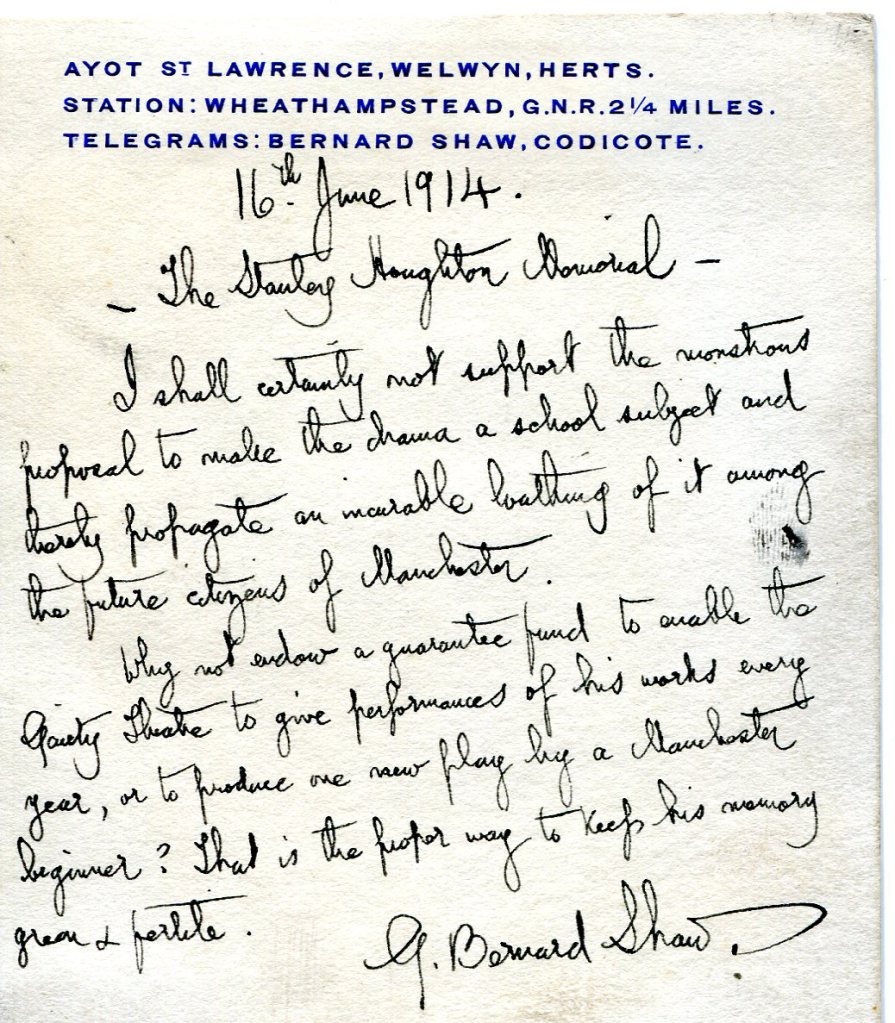
________________________________________________________________________________________________________________
Three Mystery Literary Letters and Postcards
The provenance of these three letters is unknown. Most probably the letters were purchased by an Old Mancunian collector or friend of the school and given as a gift. There is no known connection to the school
H.G. Wells
Xmas 07
Dear Mr. Ross,
I may be in Oxford on Feb 24 or 25. If so I might do a talk on Socialism or some
such topic. May I have a week or so to consider?
My regards
H.G. Wells
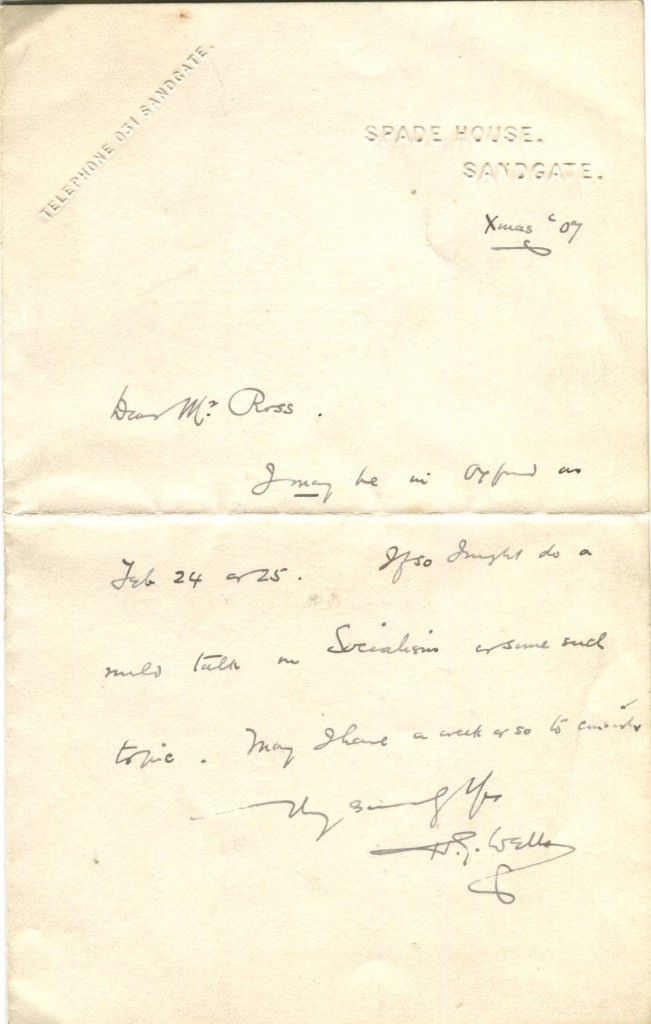
________________________________________________________________________________________________________________
Arthur Conan Doyle
Dear Sir,
Many thanks for your interesting book of photographs of Defensive Steel work which I have examined and herewith return.
I have done what I could and as the War Office is taking the matter up, it has entirely passed out of my hands.
Yours truly
A. Conan Doyle
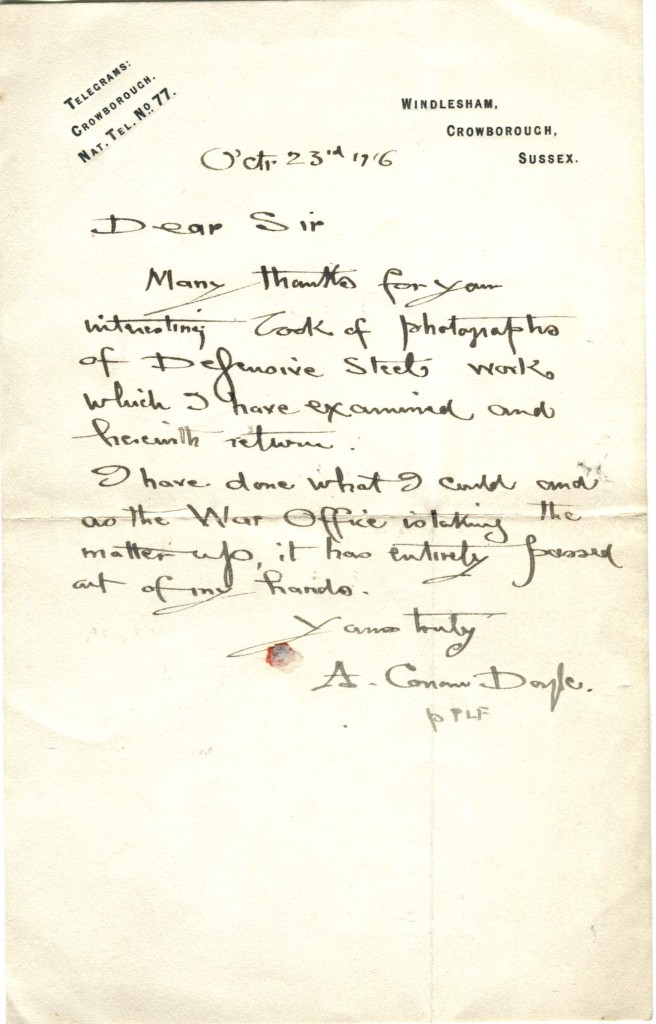
_____________________________________________________________________________________________________________
Rudyard Kipling
Dear Sir,
I have been away from home for a few days and so have not been able to acknowledge the two books you have so kindly sent me. Please accept my best thanks for them and believe me,
Very sincerely,
Rudyard Kipling
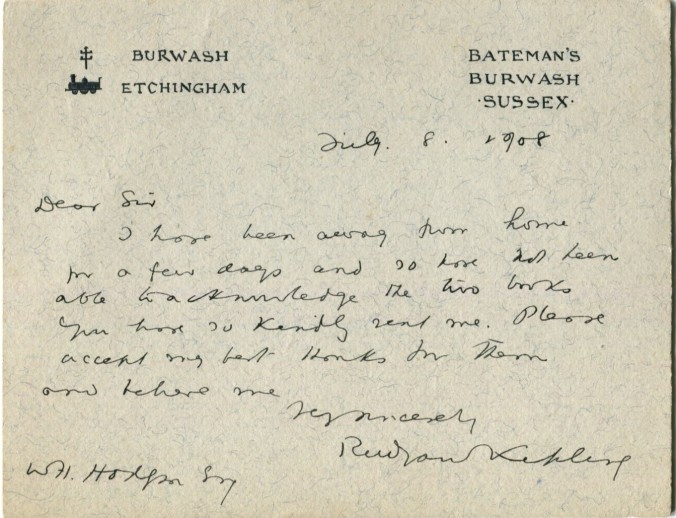
________________________________________________________________________________________________________________
The Florence Nightingale Letter, 1861
The existence of this letter in our collections is something of a mystery. Was the recipient of the letter a member of staff or Governor at the school?
Nightingale writes on hearing the news of the death of her friend, noted Manchester reformer and campaigner, Joseph Adshead:
30 Old Burlington St
Feb 23/61
My dear Sir
I have been much shocked by hearing of the death of my good and kind friend, Mr. Adshead of Manchester.
I do not know his nearest relatives yet I would gladly convey to them how much I feel their loss.
Manchester has lost among her many good, one of her very best citizens. He was always thinking of doing her good.
England has lost one of those men who, I do believe grow only in England – men of business and of the world who incessantly apply those habits of business, without going out of the world, to mending the world’s ways.
Words, hackneyed in most cases, occur to me as literally true in Mr. Adhead’s case.
To me the loss is a severe one, because he was going to carry out my ideal of a Country Hospital.
The best tribute that could be paid to his memory (the one which, of all others, he himself would have liked) would be if Manchester would yet carry out his plan.
Believe me
Yours Faithfully
Florence Nightingale
If you know any particulars of his last illness I should be anxious to know them. His last letter to me must have been written [?] before. He said he was “better”.
Adshead campaigned against the corn laws, for penal reform and the improvement of public health. The reference in Nightingale’s letter to “his plan” was Adshead’s desire to build a convalescent hospital in the Manchester area. Adshead died in 1861, but in 1871 construction started on the Barnes Hospital in Cheadle which would serve as a convalescent home for patients in the Greater Manchester area until its closure in 1999.
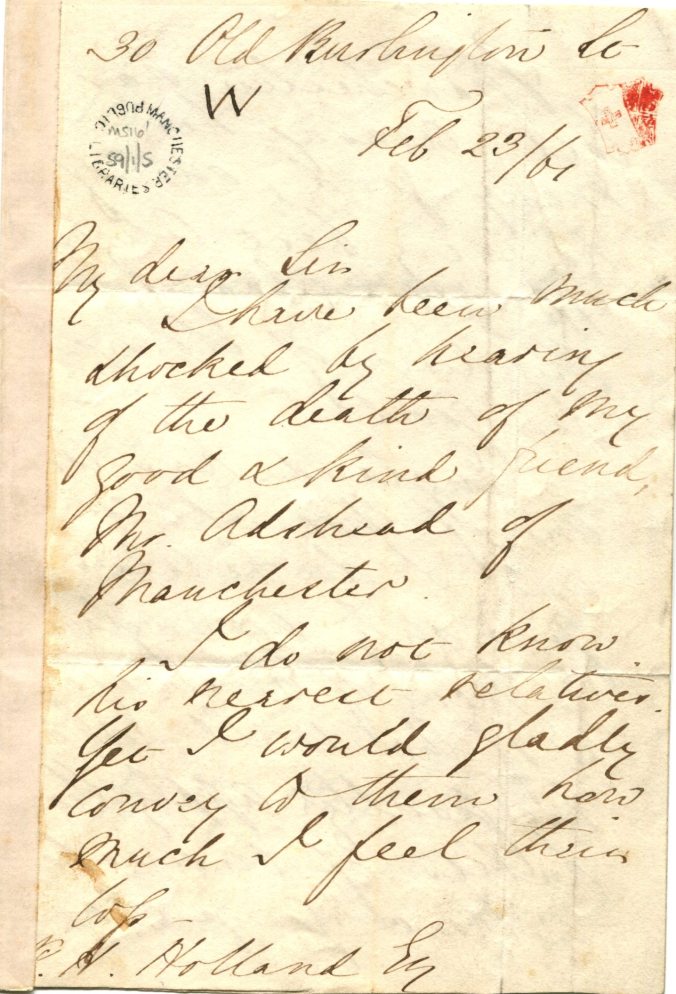
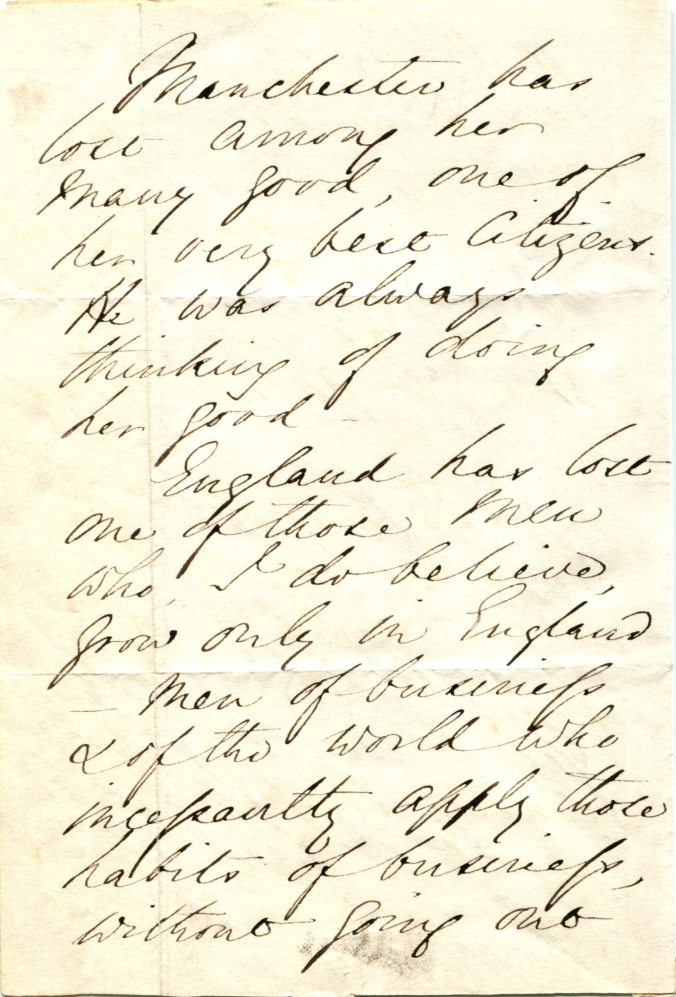
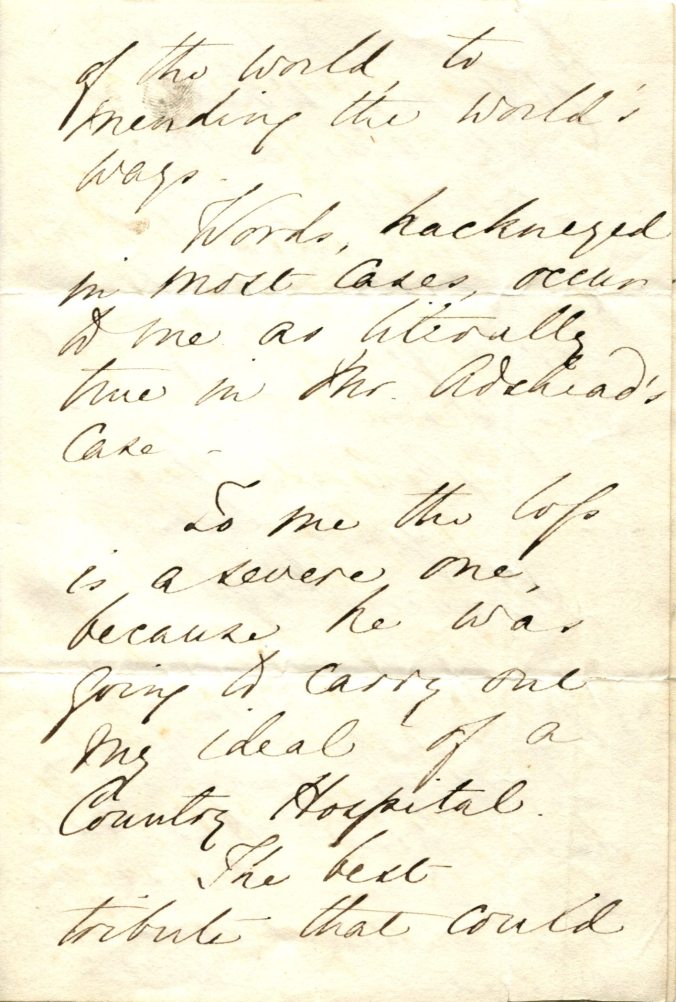
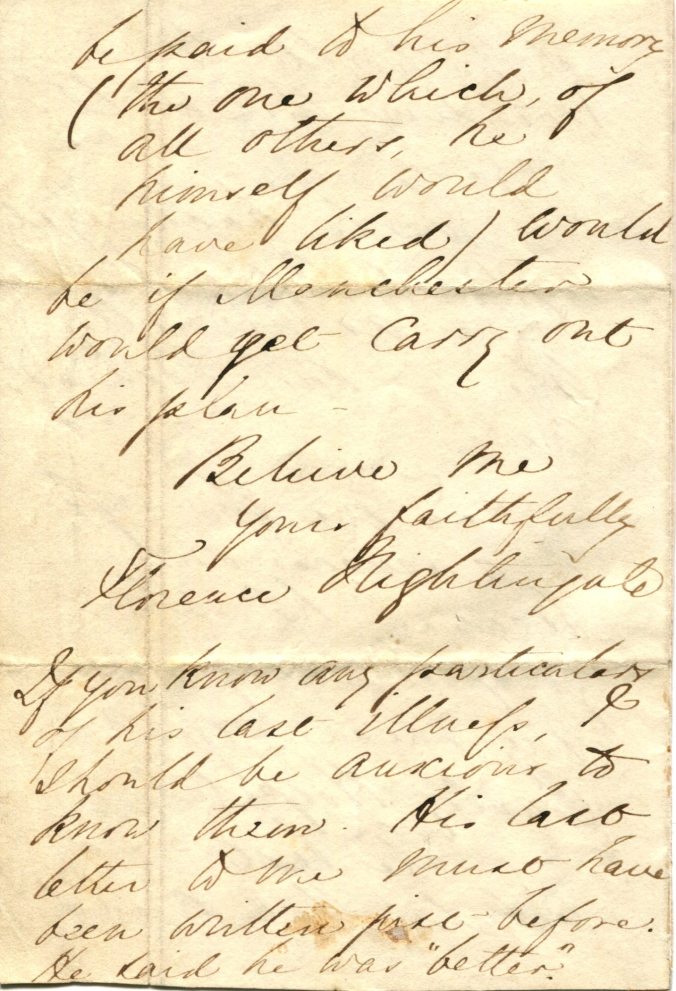
________________________________________________________________________________________________________________
Images from the School at Long Millgate, early 1900s
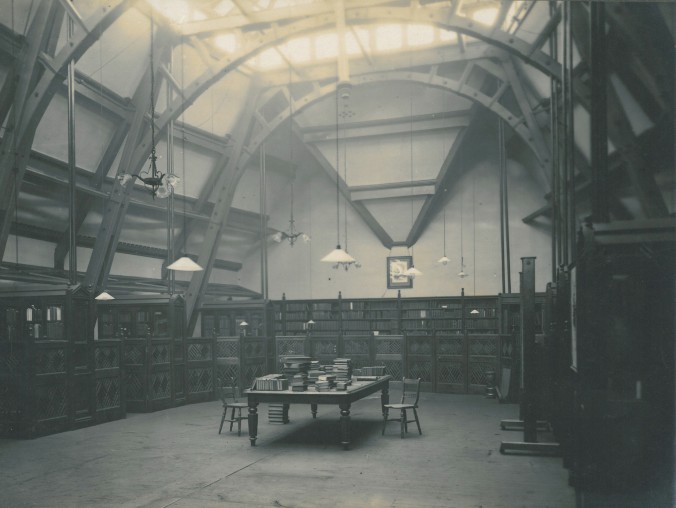
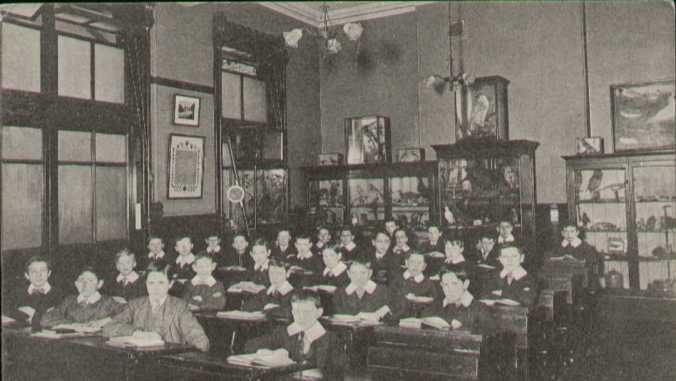
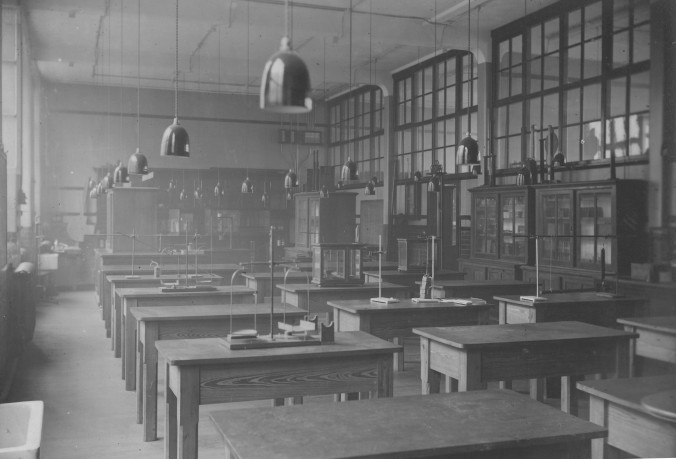
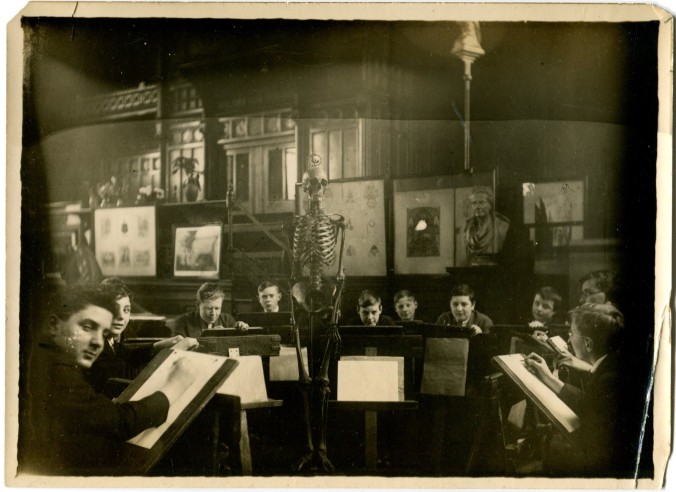
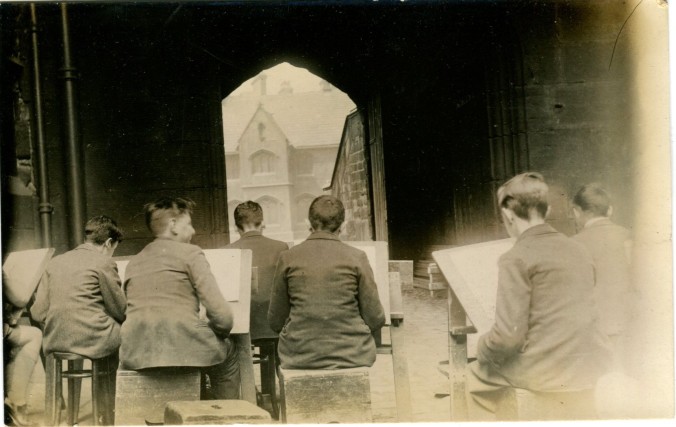
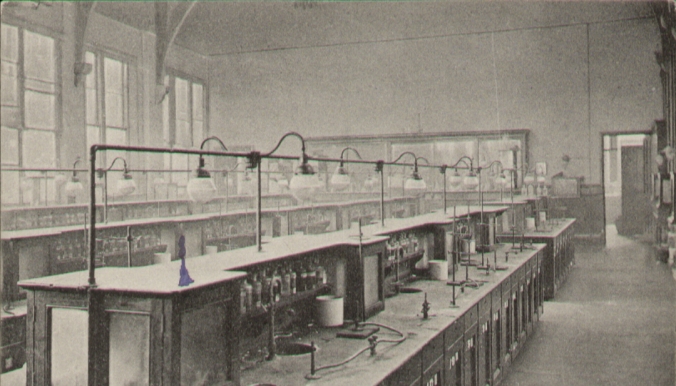
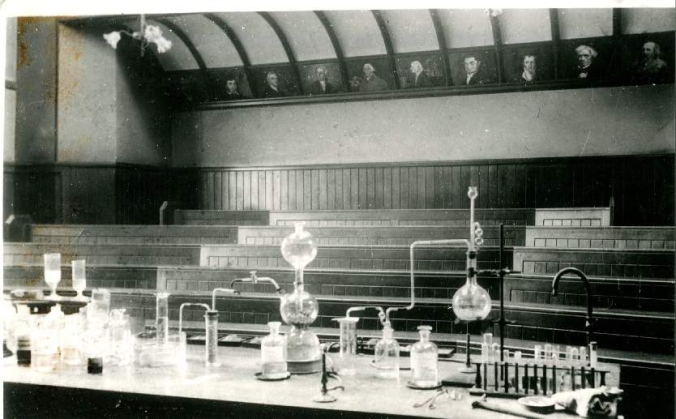
________________________________________________________________________________________________________________
Images from “Picture Post”, 1950, and “The London Illustrated News”, 1954
